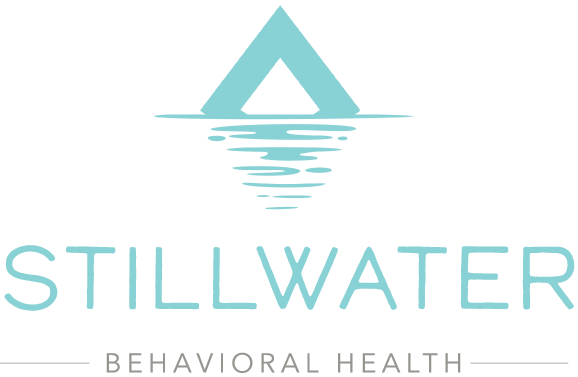Meth Withdrawal Symptoms - Addiction Help
When someone is recovering from methamphetamine addiction, they may experience withdrawal symptoms. Learn more here.
What is Withdrawal?
Meth withdrawal, also known as detox or detoxification, is when an individual who has been experiencing substance abuse quits or cuts back on meth use. This process is characterized by meth withdrawal symptoms that range from mild to severe and generally include both physical and psychological issues.
Substance withdrawal can make it difficult to refrain from using the drug again. Because the symptoms can be intense, someone who does not attend a medical center or detox center may find it difficult to stop using the illicit drug.
Questions about addiction?
Call Us Now: 1-866-232-9103
Your call is confidential with no obligation required to speak with us.
Physical Dependence
Physical dependence refers to how the drug impacts the body. Once a person has taken a drug for a long time, their body becomes used to it, and taking that substance makes them feel normal. When the drug is taken away or removed from the body, withdrawal symptoms start to appear and the individual may experience adverse physical symptoms, such as headaches, dehydration, and more.
Psychological Dependence
Psychological dependence is when someone believes that they need a drug to function. Because methamphetamine impacts someone’s confidence, energy, and activity levels, it can be difficult to stop using it. It can be particularly challenging if someone believes that they need the drug to function in a social setting.1
What to Expect During Meth Withdrawal?

With substance withdrawal, people may experience several unpleasant side effects and symptoms. On average, initial withdrawal symptoms last about two weeks and may differ from person to person. However, the common meth withdrawal symptoms are discussed below.
Symptoms
Meth withdrawal symptoms can be broken up into two separate categories: short-term withdrawal symptoms and long-term symptoms. The short-term substance withdrawal symptoms generally include:
- Dehydration
- Headaches
- Muscle pain and spasms
- Appetite changes
- Intense cravings
- Psychosis
- Fatigue
- Insomnia
While the above symptoms last about two weeks on average, there are some long-term meth withdrawal symptoms that can occur. Some of these issues include:2
- Depression
- Irregular sleep patterns
- Cravings for methamphetamine
- Anxiety
- Cognitive issues
Cravings
Because the brain has learned that methamphetamine makes the mind and body feel good, someone may experience cravings when they stop using. Cravings can come and go, but when they are intense, it is harder to manage them. Cravings can be mediated by using a medication, and this method may be one of the better ways to help with meth withdrawal symptoms.
Timeline
Meth withdrawal symptoms are generally predictable. Even though these symptoms will wear off, they may be intense at first. Withdrawal symptoms often start with physical issues including fatigue and some psychiatric symptoms such as depression or psychosis. While the physical symptoms disappear, psychological symptoms, such as anxiety, can last much longer.
Within the first twenty-four hours following the use of methamphetamine, an individual may experience fatigue and increased appetite. They may also feel irritable, anxious, and depressed. After those first twenty-four hours, the original symptoms will start to become less intense.
The second phase generally lasts between two and three weeks, but it can go on for months. These longer-lasting withdrawal symptoms are generally known as post-acute withdrawal symptoms (PAWS). Typically, the longer someone has been using methamphetamine, the longer the withdrawal symptoms will last.3
Withdrawal Without Medical Help
Withdrawal can be an unpleasant experience and can have several negative impacts on an individual’s body. Without medical help or going to a withdrawal rehab center, a person may relapse or have difficulty in successfully recovering from their addiction. Additionally, if an individual is not under medical supervision, they may continue using the drug. Further, there are some medical concerns and risks that go along with meth withdrawal symptoms.
Risks Involved
While dehydration is the most pressing concern, anxiety, irritation, psychosis, and bodily pains may make it difficult to recover from using methamphetamine. These types of issues could also lead to relapse.
Even so, dehydration is a significant concern. During the crash phase of methamphetamine use, a person may become paranoid, hallucinate, and experience intense anxiety, thereby ignoring their physical needs and failing to hydrate. Furthermore, that second phase generally brings about insomnia along with depression that can make succumbing to cravings more likely.4
What is the Brain Reward System?
The reward system resides in the limbic system of the brain and is connected to the emotion-processing center. Within this system is the chemical dopamine, which is an important neurotransmitter that activates the reward pathway.
This reward pathway controls the ability to feel pleasure and happiness. When we feel pleasure, we are motivated to repeat behaviors. As such, when an individual repeatedly uses a substance that increases activity in this reward pathway, they are more likely to use that substance again.
Drug Addiction and the Brain
Methamphetamine increases the amount of dopamine that the brain receives. When the brain experiences this influx of dopamine, it causes that high and euphoric feeling that makes someone feel as though they need the drug to experience that sense of pleasure.5
Impact on Drug Withdrawal and Drug Abuse
If the body learns that it needs substances to activate this reward pathway, the sudden abstinence or removal of the drug can have negative side effects. Because the brain no longer is receiving those signals for pleasure, learning to cope without the use of substances can be difficult and contribute to withdrawal symptoms.5
Anti-Reward System
The anti-reward system is a concept that is based on the theory that the brain generally limits our reward systems. However, with the use of drugs, an individual can increase the amount of dopamine and the activation of this reward center.6
Medications Used to Treat Withdrawal

Medications can help treat long-term withdrawal symptoms of methamphetamine. While therapy and support groups can help someone avoid their triggers and remain motivated to refrain from drug use, some types of medications can be useful.
- Modafinil: This substance can help an individual with their cognitive challenges after using methamphetamine. Because meth can cause difficulties with memory, concentration, and processing, using modafinil can help a person improve their cognition. In addition, this drug can help with cravings and sleep.
- Paroxetine: This substance is a type of antidepressant that can help someone cope with depression-like symptoms that often go along with meth withdrawal symptoms.7
- Remeron: Remeron is another type of antidepressant that can be used to help individuals cope with meth withdrawal symptoms.8
Drug Withdrawal Treatment
Drug withdrawal treatment that utilizes behavioral mechanisms is among the most successful to be used with substance withdrawal symptoms. For example, cognitive-behavioral therapy can help an individual learn to think more about their behaviors and refrain from misusing methamphetamine.
Some of the drug withdrawal treatments and therapies that have been shown to help people overcome meth withdrawal symptoms include:
- Cognitive-behavioral therapy (CBT)
- Dialectical behavior therapy (DBT)
- Motivational interviewing
Treatment for Withdrawal
There are many different treatment options for meth withdrawal symptoms. However, going to a rehab center can have many benefits. When someone is under the care of medical professionals, drug withdrawal symptoms may be easier to manage.
Residential Care
Residential withdrawal typically takes place in a withdrawal unit or a hospital. Staff is generally available twenty-four hours a day, and a patient will attend a detox center for about five to ten days on average. While some residential locations do not allow participants to contact friends, family, or partners, others may include them as a supportive measure.
Outpatient Care
If an individual does not need to be admitted to residential services, outpatient withdrawal can be a viable option. Outpatient withdrawal involves having one on one consultations with a health professional as well as counseling and support services.
Medication-Assisted Treatment
Medication-assisted treatment is when someone takes medication to help cope with opioid withdrawal symptoms. The medication can help mediate these symptoms and help a person learn how to cope with cravings and stressors within daily life.
Resources
- https://adf.org.au/reducing-risk/withdrawal/
- https://www.webmd.com/connect-to-care/addiction-treatment-recovery/methamphetamine/meth-withdrawal-help
- https://onlinelibrary.wiley.com/doi/10.1111/j.1360-0443.2010.03066.x
- https://www.drugabuse.gov/publications/research-reports/methamphetamine/what-treatments-are-effective-people-who-misuse-methamphetamine
- https://www.drugabuse.gov/videos/reward-circuit-how-brain-responds-to-methamphetamine
- https://www.annualreviews.org/doi/10.1146/annurev.psych.59.103006.093548
- https://www.nhs.uk/medicines/paroxetine/
- https://www.webmd.com/drugs/2/drug-13707/remeron-oral/details


